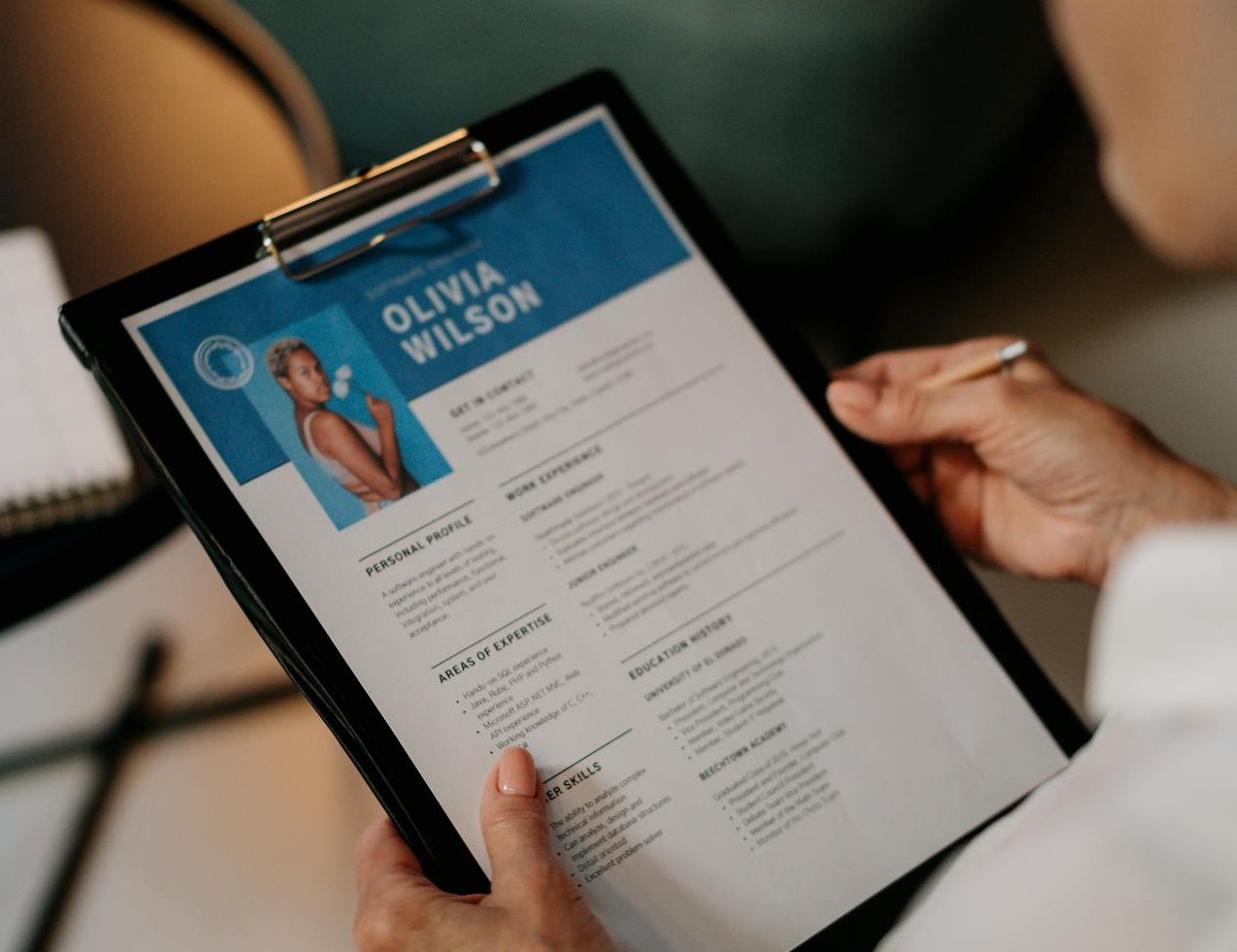What Now?
Feeling stuck in the same career you’ve been chipping away at since you graduated trade school or university? Each year, scores of people face the same challenge. Whether they’ve been laid off or are simply unhappy in their jobs, they might wonder if they really want to stay on the path they’ve laid out for themselves—or if it’s possible to make a change after 30, 40, or 50.

You’re Not Alone
While our parents or grandparents might have stuck with the same job—or even the same company!—for decades on end, that kind of “job for life” is now far less common than it was in years gone by. The statistics paint a pretty damning story.
What Happened To Commitment?
According to a recent survey, when someone in their early 40s started a new job, 33% lasted less than a year, while 69% lasted less than 5 years. And, according to government research, college grads between the ages of 18 and 46 have an average of 12 jobs during their careers.
As nice as the thought is of finding a great fit and making it work for years on end, it simply doesn’t seem realistic in the current landscape.
Recareering
If you think about it, the practice of “recareering,” as it’s often called, makes sense. We tend to choose our career path at a remarkably young age—before our brains have even finished maturing. And while, in many cases, this works out fine, when you hit a wall in your career, it can seem intimidating and difficult to attempt any sort of pivot.
How Old Is Too Old?
Many people are reluctant to leave their careers behind because of a sunk-cost fallacy. Be it the time invested or money spent on education, walking away can feel like you’re throwing something in the garbage. But the longer you wait in an unhappy state, the more of your own personal time you’re wasting—and no matter the age, time spent being miserable is the biggest waste of all.
Leaving It All Behind
By the time we reach a certain point in our careers—which can mean different things for everyone, and can vary by age—we will hopefully have built the following: Financial stability, flexibility, a reputation, a professional network, and a honed set of skills. Unfortunately, depending on how far you want to stray from your current path, you may have to grapple with leaving these things behind.
Weigh The Cons
Look at what you’ve built for yourself and focus in on what you’d be okay saying goodbye to. For example, if you have an idea of what you’d like to do and it involves going back to school, are you ready to potentially live off your savings for that amount of time? If you have the flexibility to take vacations or work from home, would you be okay working on a rigid schedule with irregular hours?
…And The Pros!
There are many reasons that a career change might be essential. For some people, burnout in imminent and they may seek a career that doesn’t take a toll on their mental health and personal life. Even if you were to make a massive change, many of your skills—especially personal—will be transferable.
The Comfort Zone
Consider why you’re interested in a career pivot. Once we’ve hit a certain “comfort zone” in our careers, there can be a honeymoon period—but familiarity and routine can also build contempt. Would you be okay leaving behind the financial stability, benefits, and freedom that your career offers if another path can’t necessarily promise these things to you?
Is The Grass Really Always Greener?
Are you really to call us pessimists yet? During the pandemic, many people made career changes in what became known as the “great resignation”. Unfortunately, some researchers have found that this was followed by what they called the “great regret”. Which is all to say: weigh this decision carefully. Would you be prepared to go back to what you left behind in, say, five years if this Plan B doesn’t work out?
And Now, For A Pick Me Up
Sure, now that you’ve taken a long, hard, and perhaps cynical look at the negatives, consider the success stories. Jeff Bezos went from computer scientist on Wall Street to launching Amazon after 30. Terry Crews worked as a janitor after leaving the NFL, but before he became a movie and TV star. These are just two examples of people who found their path after the age of 30.
 National Museum of American History Smithsonian Institution, Flickr
National Museum of American History Smithsonian Institution, Flickr
Explore Your Options
Changing your career doesn’t necessarily mean leaving your field. You can take your expertise and apply those skills as a consultant, or start your own business. Perhaps you have skills in a corporate setting you think you could use in the non-profit sector. Is this going to be a pivot, or a complete 180 into a completely different field? Consider your options.
Know Yourself
One advantage that you have at this point in your life is that you may know yourself better than you did in your 20s. It may sound flighty, but testing our different online tools may help point you in the right direction if you’re not sure. Try a Myers-Briggs test and see what type of careers people with your personality type commonly end up in.
The SWOT Test
We’re not just changing careers on a whim here—the goal is to excel in what you do. In this sense, a SWOT (strengths, weaknesses, opportunities, and threats) analysis can help. This way, you can exploit your strengths, manage weaknesses, and identify opportunities that might not have occurred to you.
You can also apply what you learn to the expectations of whatever new career you’re considering to see if you’d make a good fit.
The Impact Factor
As we’ve mentioned earlier, the degree of change will be reflected in the impact that change has on your life when you transition. For example, a change that involves going back to school could definitely be categorized as high impact. There are ways to change your career that you can do without turning your life upside-down—they just involve a little finesse.
A Low Impact Change
The easiest way to make a low impact change is through the personal connections you’ve made in life or in your career. Let other people you admire help you or guide you. In the same way you’re never too old to make a career change, you’re never too old to have a mentor—even one younger than you!
Work The Connections
Do you have a friend whose career you find fascinating? Call them up and ask them how they got to where they are—and their honest opinion about whether it might be worth it for you. Similarly, if someone you work with from another company or a former co-worker has taken an interesting path, invite them out for coffee. Not only can you pick their brain about it, they might know about any openings and be able to set you up to be considered.
Although some qualifications are set in stone, many companies that are hiring are more likely to look at a person someone on the inside recommends.
A Medium Impact Change
There are many ways to make a change that will alter the path of your career without involving a total life disruption. Many have made the shift from full-time employee to freelance or consultant..
Prepare For Adjustments
The biggest shock here can come from the benefits and drawbacks of each. Especially in freelance or consulting, there’s a lot more freedom—but a lot of that may be spent on admin work, like invoicing, marketing, and accounting.
A High Impact Change
Perhaps you’d like to take a business model you know inside and out from your 9-to-5 and use your knowledge to start your own business. Or perhaps you want to leave behind your career in marketing to follow a passion like cooking, or something that you feel may have more of a positive impact in the world, like nursing.
Starting From Zero
These high impact changes will undoubtedly disrupt your life as you know it in countless ways—from hours, to finances, to family dynamics, and even sleep. One thing that people underestimate is how much you will need to have your partner on board to help weather these changes.
I Get By With A Little Help
The financial and time commitments can be massive, so it’s important to have someone on your side to pick up the slack when you need to dedicate yourself to the path you’ve chosen. Talk it out beforehand and be clear what you will need from them, like help with childcare, and where you might have to adjust your relationship expectations—date nights might go out the window if you need your evenings to study.
There’s also the realization of financial risks if you’re starting your own business.
Preparation Is Everything
You may need to take a hard look at your budget and see what’s feasible in terms of a change. If your new career may set you back a few steps on the ladder in terms of pay scale, make sure that you can still maintain your financial commitments. If you’re taking a course or going back to school full-time, there’s not just that flat cost, there’s also books, food, and the fact that you may not be able to work during that time. Adjustments in lifestyle may need to be considered.
Try Before You Buy
If you’ve spoken to people in the field you’re interested in pursuing, ask them if it would be possible to do some job shadowing. If your current work contract allows for it, trying to freelance in your spare time could give you a better idea if you’re cut out for it. And if you want to do something that helps others, volunteering can provide perspective.
The Next Step
Get comfortable in these new endeavors—try them on to see how they feel. Is it a good fit? If you wanted to take it to the next level without making a huge impact (yet), look into taking a short course in the field you’re interested in. Local community colleges are just one place to look for these. Scour their website and reviews to see whether enrolment or simply auditing the course is the best choice.
Work Your Transferable Skills
Once you have an idea of what you’d like to do, identify any skills you have and consider how they could be used in your ideal career. These may include collaboration, critical thinking, leadership, initiative, resourcefulness, adaptability, creativity, emotional intelligence, and communication, among others.
See Where Everything Fits
Before you walk away from your current career, take time to look back on what you’ve achieved and gather information on it so that you can demonstrate these transferable skills to potential employers in the future. It’s easier to do this with the resources at hand in your current position than it will be after you leave.
What’s Real Is What Matters
While emotional intelligence can be transmitted easily through interactions, the evidence of other transferable skills may require documentation. For example, if you’d like to emphasize your initiative, gather the stats on projects you’ve started and the concrete results you got. For those with creative skills, save the work you’ve done and make a portfolio.
Make A Career Plan
You may have made a career plan before in your final year of college or when you were just starting out. There’s no reason you can’t make one if you’re planning a pivot! Especially if you’re making a drastic change that could take years to accomplish, it can be worthwhile to set benchmarks for progress.
Career Plan Step 1: Identify Your Options
We’ve already talked about many of the ways to do this, from testing to talking to professionals in the field to shadowing and volunteering. But it’s important to go back to what made you originally consider changing careers, whether it’s dissatisfaction or a secret passion for something else. Always keep that moment that brought you here in your peripheral vision.
Career Plan Step 2: Prioritize
Yes, it’s important to keep your eyes on the prize. After all, it’s what got you here. But it’s also important to know what your deal-breakers are. If you dream of getting into teaching but the stress of fighting for tenure would just give you PTSD flashbacks to the worst moments of your current career, look for a middle-ground—perhaps teaching corporate courses.
Writing down what you want the most and what you want to avoid completely should provide some much-needed perspective.
Career Plan Step 3: Consider The Conditions
While we can do our best to adjust our expectations, there are real-world factors involved in career changes that we cannot control, like the demand for employees in a certain field, and the way the field has changed in the past and how it’ll change in the future. Some industries are growing and thriving, others are tanking, and others seem to operate steadily no matter which way the wind blows.
How much precarity are you willing to take on if where you want to go is a high-risk industry?
Career Plan Step 4: Make The Choice
At some point, after all this careful consideration, you’ll have to identify the choice you think is best for you. It not be exactly the change you imagined when you set out, but should still reflect what brought you to this place anyway. Once you’ve made the choice, you can begin to take steps to make it happen.
Career Plan Step 5: Make It Happen
If the choice you’ve made involves going back to school, identify the application deadlines and gather any material you’ll need to apply. Otherwise, identify what steps you need to take to change your course and order them by priority. Go big with the list. Set short-term (less than a year) and long-term (1-5 years) goals—but don’t just write them down. Once you have that list, get it started.
Career Plan Step 6: Ask For Help When You Need It
If the list seems a little too insurmountable, or you’re dealing with false starts, keep in contact with people within your network that might be able to help you. Above and beyond that, considering contacting a career advisor who may be able to better help you plan your next steps.
Small Steps Count
It’s advice we’re quick to give to others, while being totally hard on ourselves. Remember that small steps count when you’re undertaking a huge project like a career change. When you’re just getting started, there may be weeks where it feels like you aren’t making progress. Try and tick small things off the list. Be patient.
Never Stop Editing That Resume
Change is constant. Most people only update their resumes or CVs intermittently, but once you start looking for a job you may find it needs a massive overhaul that seems insurmountable. Even if you haven’t taken the steps to change careers yet, make sure you open your Linkedin and resume at least once a month if not twice to make small edits and changes that reflect your accomplishments and priorities at work.
Prepare For Interviews
Not only has the process of interviewing for new jobs changed drastically in recent years—including multiple rounds of interviews and skill and writing tests—but there may be different expectations for interviews in your new field. Do your research, check relevant message boards where people share their experiences, and if you still feel unprepared, reach out to people who may be able to help give you insight into the process you can’t get online.
Head Them Off At The Pass
Age discrimination may be illegal, but that doesn’t mean it’s not a problem. If you’re worried about unconscious bias, emphasize and provide examples of your adaptability, productivity, and comprehension of new tech and new trends. You can always remind them that The Society for Human Resource Management performed a study about advancing age and productivity and found no defining link between the two.
Face Your Fears
There are going to be a lot of unknowns—even after you’ve taken concrete steps to make that move. You could get all your ducks in a row, send out a slew of CVs, and still get no answer. It happens. Remember all the tenacity if took to get here, and remember you’ve still got more in the tank.
False starts are one of the many intimidating possibilities to face. There are always more steps to take to keep going.
Believe In Yourself
Does that sound a little too maudlin? People in their 40s or 50s starting over in a new career may be just as prone to self-doubt or imposter syndrome as someone in their 20s. Stay positive, remember what brought you to this point, rely on your support system, and know that you have what it takes to achieve your career goals. Read that back again, memorize it, and don’t forget it.














































